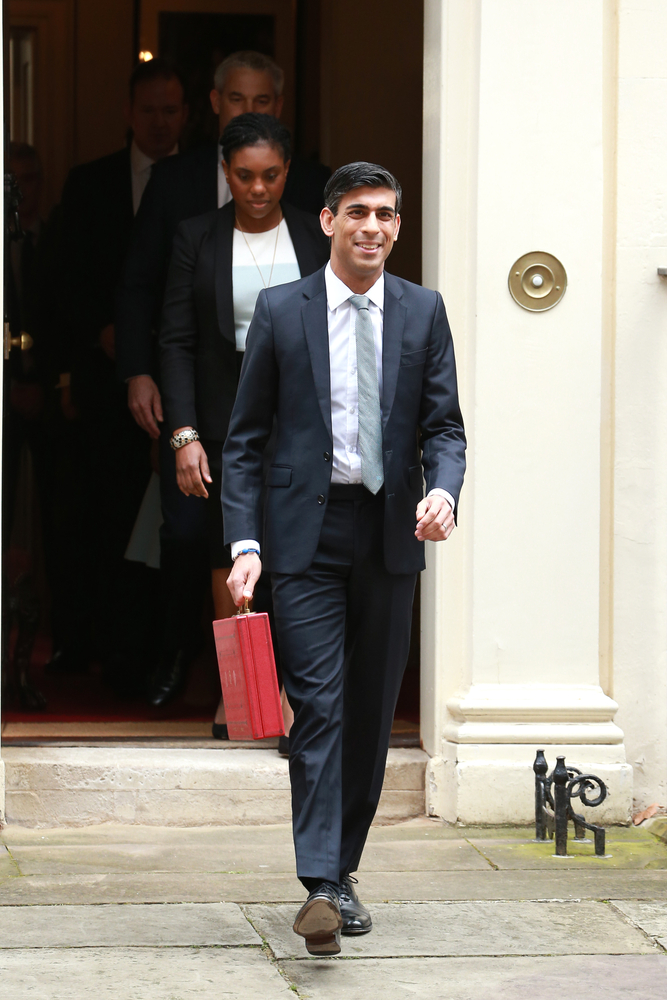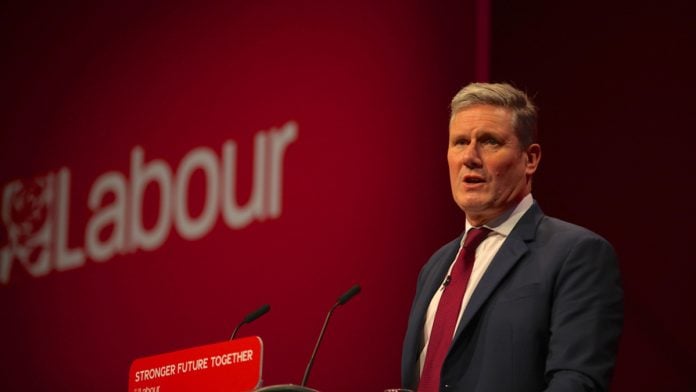A UK general election is looming this year, and the opposition Labour Party has placed Open Banking and AI at the forefront of its policies towards financial innovation and growth for the country.
In its ‘Financing Growth’ financial policy document published this week, the left-leaning party outlined six core goals it has for the financial services sector, one of which is to “embrace innovation and fintech as the future of financial service”.

“The UK has historically led the world in fintech,” the document, signed by Shadow Chancellor of the Exchequer, Rachel Reeves, asserted, but added that the country is ‘in danger of slipping behind’ other nations.
A fact noted in the policy document which is undeniable is the geographic breadth of the UK financial services and fintech sector. Whilst London, as both a national and international focal point for banking and finance, is clearly the leader in terms of fintech, other cities have been building up their profiles.
The UK’s second largest city, Birmingham, is also home to the second largest financial services sector, Labour noted. The West Midlands city hosts the HQ of HSBC, a regional office for Goldman Sachs and all of the ‘big four’ accountancy and audit firms.
Meanwhile, the traditional northern industrial hub of Manchester – noted in the history books for being the world’s first fully industrialised city – also has a burgeoning fintech scene, as do the Scottish, Welsh and Northern Irish capitals of Edinburgh, Cardiff and Belfast, among other cities throughout the country.
“We believe a strong financial services sector will drive investment in jobs and new industries,” Reeves remarked. “Our financial sector can be a vehicle for growth not just from the top down, but from the bottom up and the middle out.”
AI on both sides of the political coin
Fostering fintech growth is a key objective not just for Labour but also for the governing Conservative Party. Whilst the duo, for obvious reasons, don’t find much common ground on a number of topics, fintech and financial services as a core segment of the British economy seems to fit neatly into the cross-party venn diagram.

PM Rishi Sunak’s government has already been making moves in this area, however, and given that it actually has direct influence over policy making it could be assumed that the Conservatives have had a head start in this race.
An Oxford-educated economist and a financier by trade prior to his political career, Sunak has been a vocal proponent of the finance sector. He has commented frequently on developments in crypto and AI, for example, and the latter was the subject of a £500m investment in the last budget.
So what are Labour’s ambitions in fintech? Like its conservative rivals, the Labour Party is banking big on AI as a growth driver in fintech. Development of this tech will be ‘profound for the future of financial services in the UK’.
The policy document explained: “There is a global race to be the country of choice for the growth of AI, which the UK, with our consolidated expertise and strong reputation for regulation, is well placed to lead. However, consumer protection must come first when regulating new technology.”
For AI to be adopted securely and with respect to consumer protection, Labour hopes to set ‘’international and clear standards’ for the tech to be safely used. This will also require an ‘agile approach to regulation’ for AI’s utilisation in financial services, the party asserts.
All in on Open Banking
The second element of Labour’s two-pronged approach to fintech revolves around Open Banking, a technology and service which has hardly gone unnoticed in financial circles over the past year.
In fact, for those in the financial sector talk of Open Banking was hard to escape in 2023, and it seems this will continue into 2024 – and likely moving forward. It has also caught the attention of the government and regulators.
For example, Joe Garner’s (former Nationwide COE) Future of Payments Review noted that Open Baking can play a huge role in British business, but that regulatory gaps need to be filled, particularly on consumer protection.
Labour and Rachel Reeves seem to have taken note of this, and the party has pledged to “deliver the next phase of Open Banking to unlock the potential for increased competition in retail payments”.

Should the party win the apparently forthcoming election – Sunak has hinted at calling a vote around Autumn and it must be held no later than January 2025 – it aims to build on the early success of Open Banking to benefit SMEs and consumers.
This would see a continuation of the Joint Regulatory Oversight Committee (JROC) roadmap for the next phase of Open Banking, suggesting that this course of action would remain largely unchanged.
Banking has become a bit of a talking point for Keir Starmer‘s Labour Party of late when it comes to finance.
In December the party took aim at the Conservatives due to the stripping back of retail banking services in recent years, a process Labour claims has cut many people off from financial services.
Who is the party of fintech?
Both Labour and Conservative have placed fintech as a focal point for their financial policies and plans for economic growth, it seems. For the most part, this is likely not the defining issue for the general voting public.
Inflation, however, is a big issue – the figure currently stands at double the Bank of England’s ideal rate of 2% – and is burning a hole in many consumers’ pockets. Fostering financial growth will help ease this burden.
Meanwhile, whilst general inflation and other hot button issues like instability in the Middle East and war in Ukraine are the more eye-catching debates, all votes matter, and so winning the hearts and minds of finance and fintech will still be a valuable battle for Labour and Conservative to invest in.
The fact that both Labour and Conservative are banking on fintech as a growth driver perhaps also shows how radically the country’s economy has changed over the past few decades.
Traditionally, and maybe according to stereotypes, Conservative was the party of finance, banking, big business and the markets, whilst Labour was that of the coal miner, the steelworker, factory worker and docker. Now, both want to present themselves as the party for fintech.
As and when an election date becomes clearer and the big day draws nearer, and with both parties seemingly betting on AI and Open Banking as key growth drivers, they will have to work hard to prove whose approach is best….























